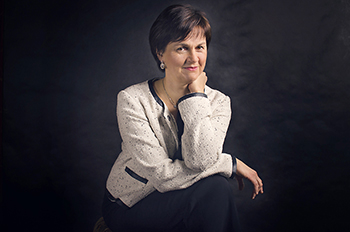
Liesbeth Schlumberger-Kurpershoek
|
The Odeion School of Music (OSM) at the University of the Free State (UFS) has become the first in the country to launch an Organ Chair, named after seasoned international organist Liesbeth Schlumberger-Kurpershoek.
Over the last two decades South African has seen a decline in organ student numbers. The School of Music has taken the initiative by deploying experts and instructors to coach and mentor OSM students, in an effort to increase their chances of excelling in the international music scene.
The Organ Chair is an entity of the International Artistic Mentorship Programme (IAMP), which aims to establish partnerships between successful international musicians and OSM students. It is within this context that the OSM decided to launch the institutionalisation of an Organ Chair in a programme scheduled to take place from 8 -13 September 2015 in the Bloemfontein Campus and in surrounding areas.
Meet the expert
Liesbeth Schlumberger-Kurpershoek is a French-South African organist and pedagogue, who is well versed in the music profession. This bodes well for our university’s music students. Initially educated by the great Stephanus Zondagh at the University of Pretoria while still a school pupil, Liesbeth’s passion for music has soared to great height since then.
Some of her accolades include winning the prestigious SABC Music Prize in 1985, and the International Organ Competition held in Bordeaux in 1989.
Liesbeth has worked with distinguished organists at the France Conservatoire National de Ruiel-Malmaison, the Conservatoire National de Région, Conservatoire National Supérieur de Musique in Lyon, and is the organist at Reformed Church of Etoile in Paris. In 2010, she was an adjudicator at the Chartres International Organ Competition, one of the most prestigious of its kind in the organ world.
This active recitalist and masterclass pedagogue facilitated classes attended by master students from Cape Town, Stellenbosch, and Potchestroom, and workshops as part of launching the Liesbeth Schlumberger-Kurpershoek OSM Organ Chair.